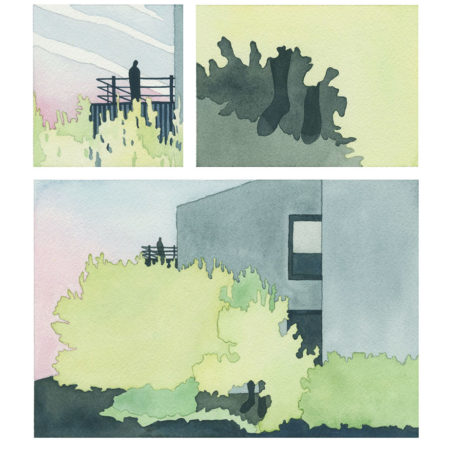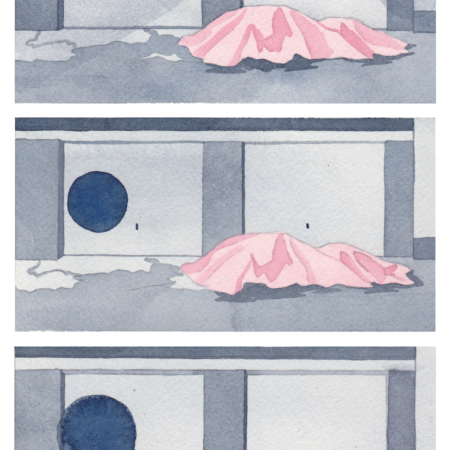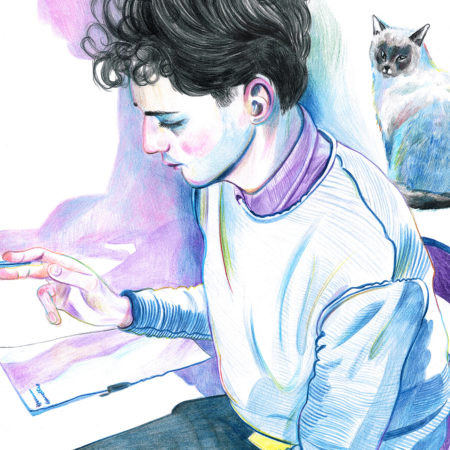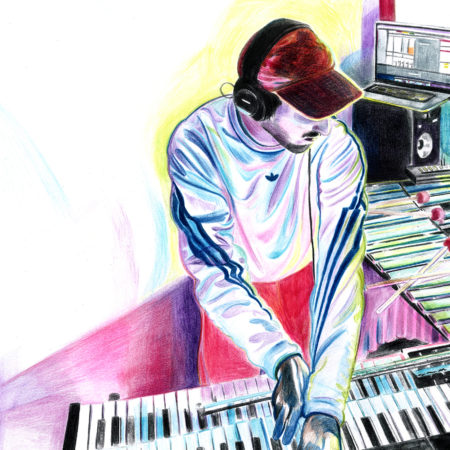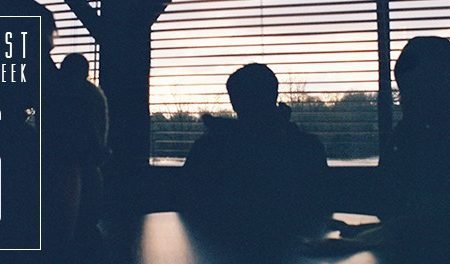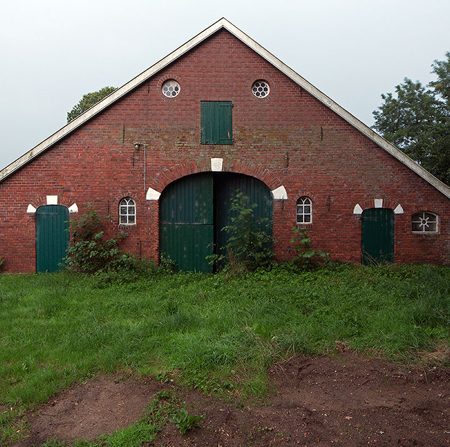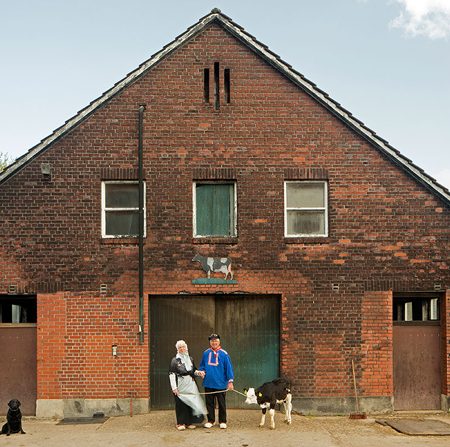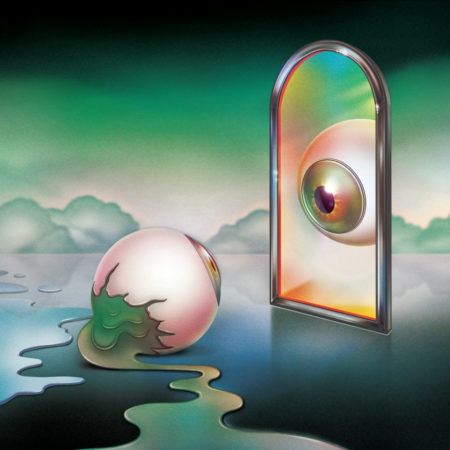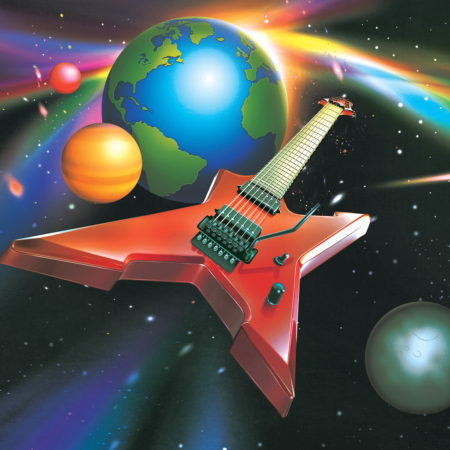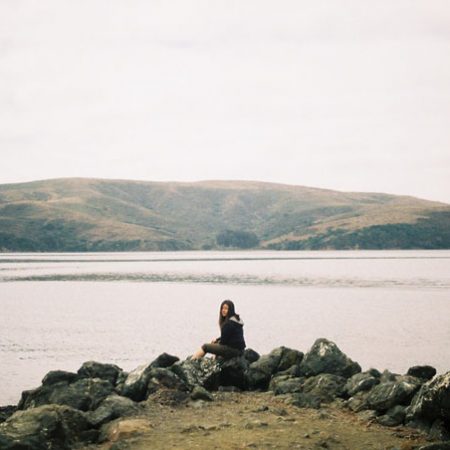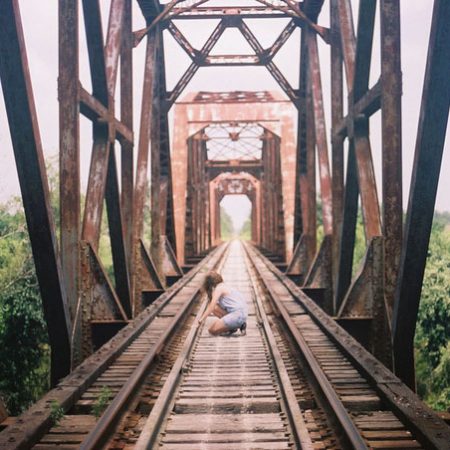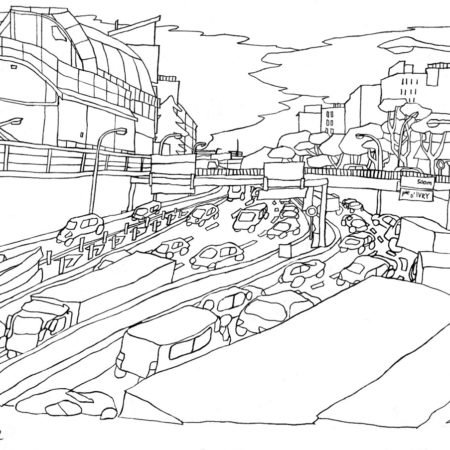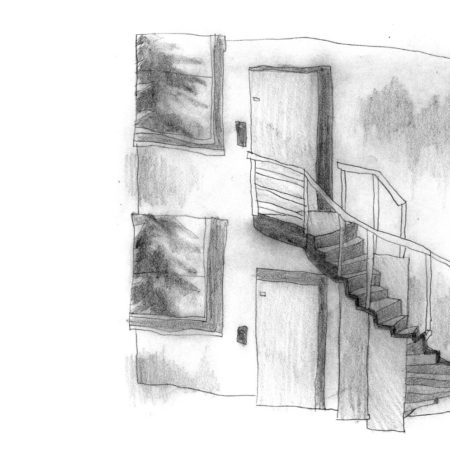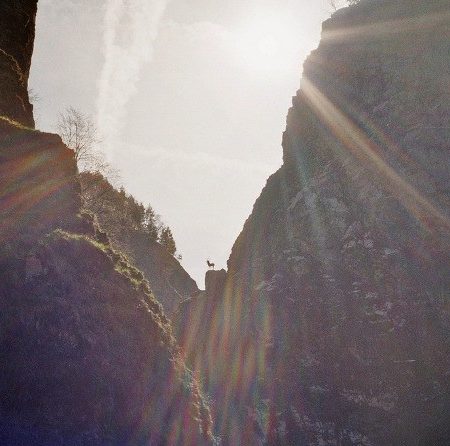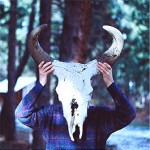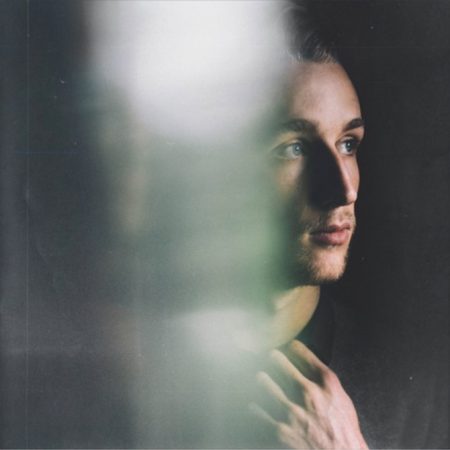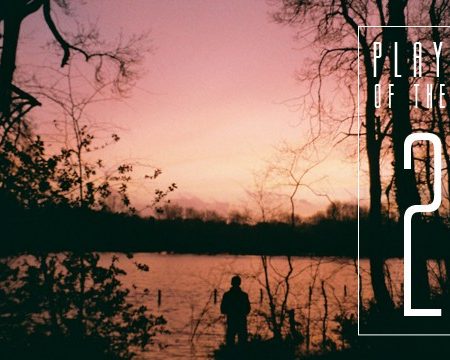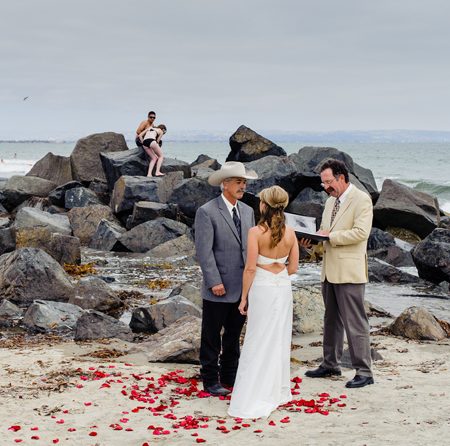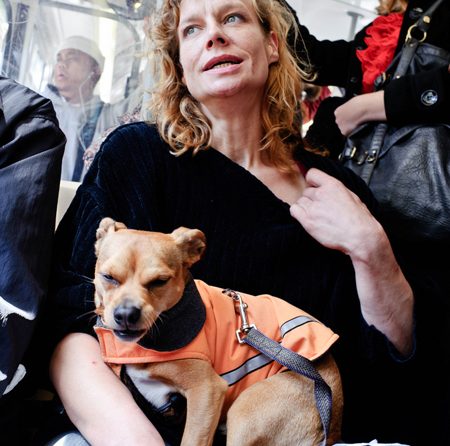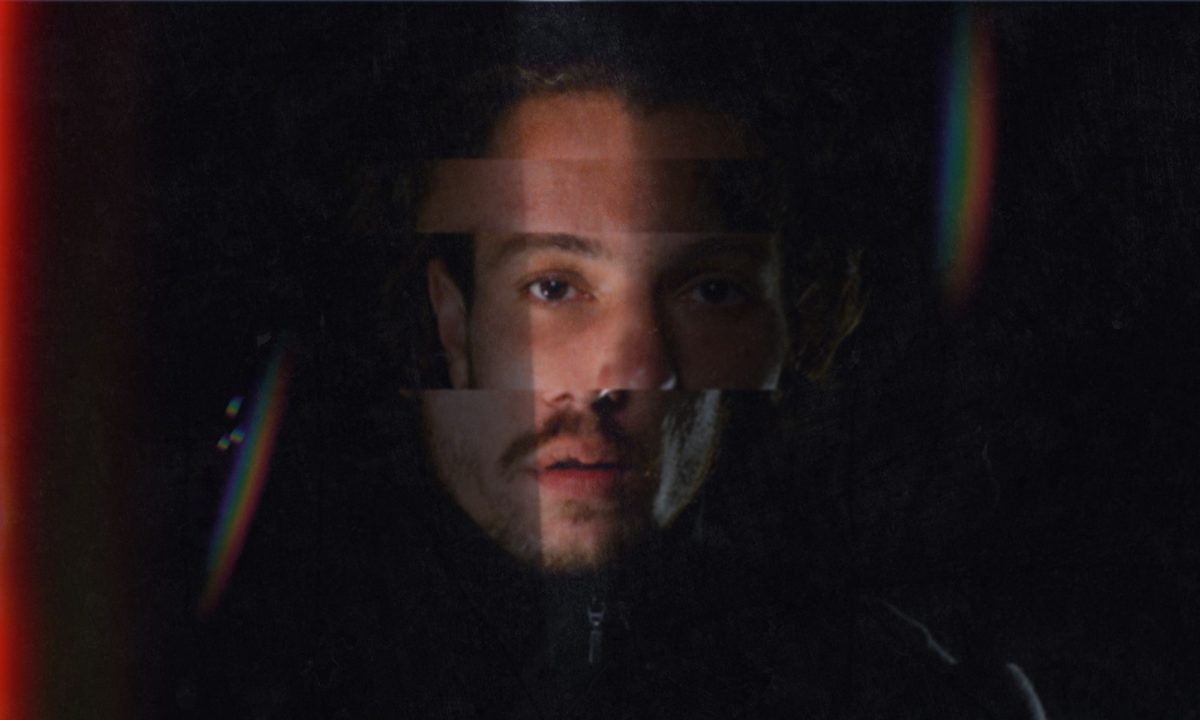
When you have an idea at the beginning of the night, it can last all night, there’s no break for eating, no going out that can disturb this idea.
Simon Brunel
MUSIC . July 23rd, 2021Simon Brunel is a french multi-instrumentalist and composer from Nantes and living now in London.
Hey Simon, how are you?
Hi Wertn, I’m good :)
Creating things, enjoying my return to London, looking forward to this upcoming summer and the return to life and the outside.
What can we find in your head?
Confused and exciting ideas, linked to my love for music, a picture of the Thames in my head from yesterday’s walk.
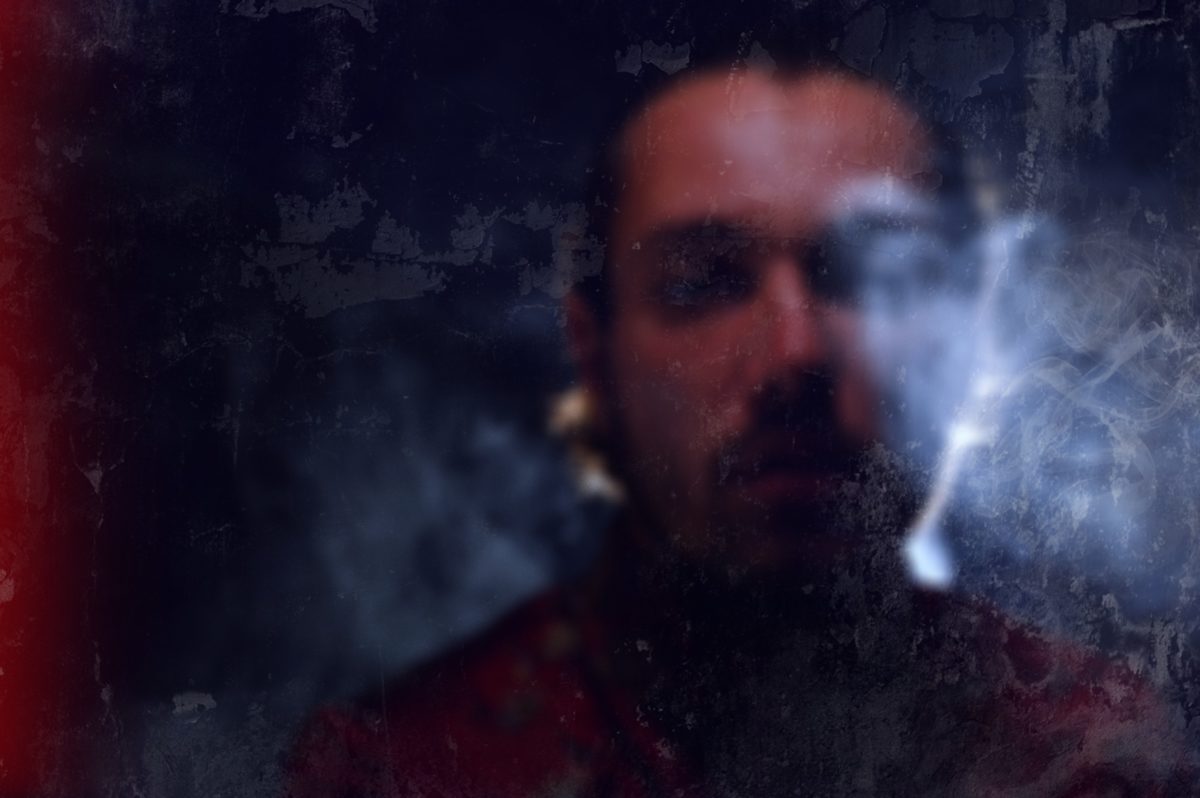
You live in London, what’s that like?
For a year and a half, I have done a lot of round trips between London and Nantes because of the COVID. This is what my track “Under and Overseas” is about. Before the COVID, living in South London was nice. The way people think, make music and art but also their position about education, religion, gender is liberating and an avant-garde process. It’s also scary to live here, things are going fast, time is running out, life is expensive.
When did you start composing music?
In my teenage years, on a music paper. It was for my first jazz band. I didn’t know what to do, so I tried to write the weirdest and fastest thing possible and it was impossible to play! I think I composed in my head since childhood, as everybody else: because singing melodies in your head is composing right?
Your style has changed over the years; your earlier stuff was more jazz drumming, very different from what you do now. What has led to that sort of development, according to you?
Composition! Mixing ideas, stories, pictures, sounds, memories in my head led me to mixing different music styles, sonorities and instruments. The way I studied and practiced instruments through jazz drumming and classical percussion in Conservatoires being young was different. I felt I was taught to follow and assimilate some traditional requirements but not so much oriented following my inner voice!
I discovered in highschool musicians such as James Blake with his pop-dubstep, Jon Hopkins reuniting classical and techno, Aphex Twin, Bon Iver with folk-tronica… Also some experimental classical composers from the 1970’s such as Steve Reich, Philip Glass, with repetitive music/beats, opening a door to techno music by dancing in my first clubs!
I felt musical styles and communities could be much closer and connected to each other than I originally thought.
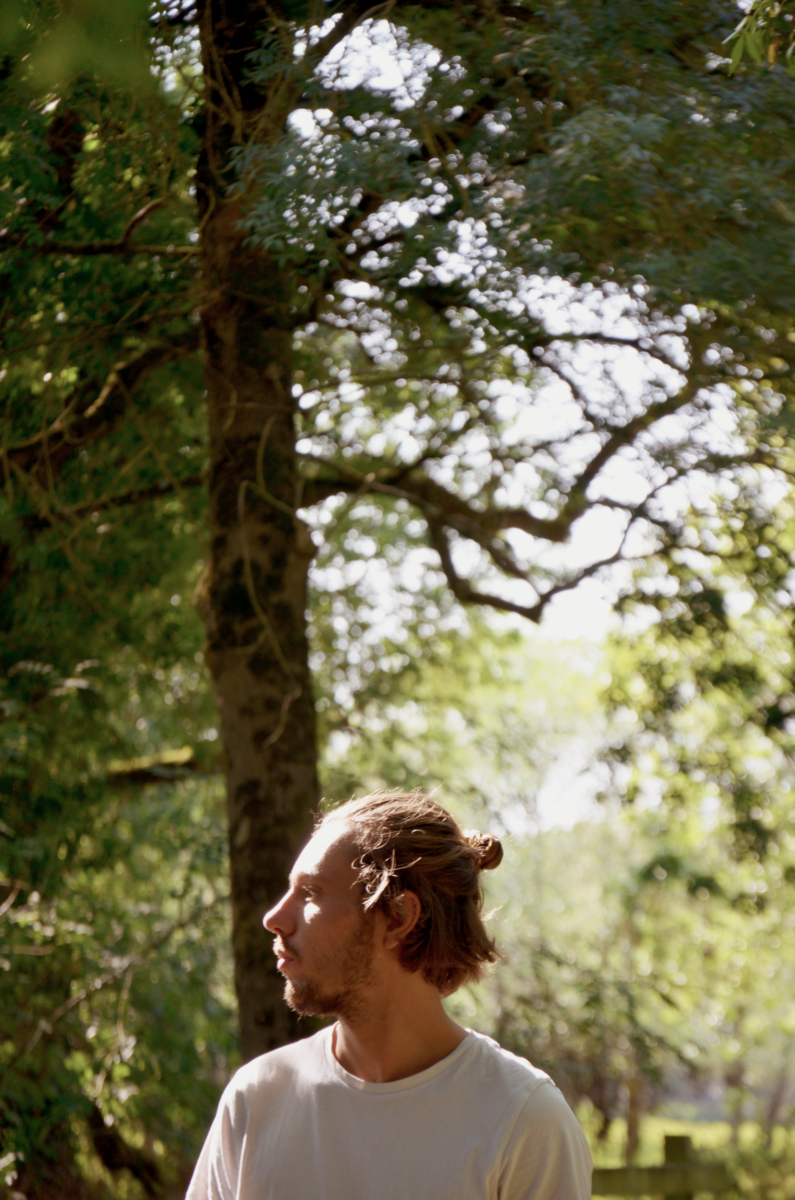
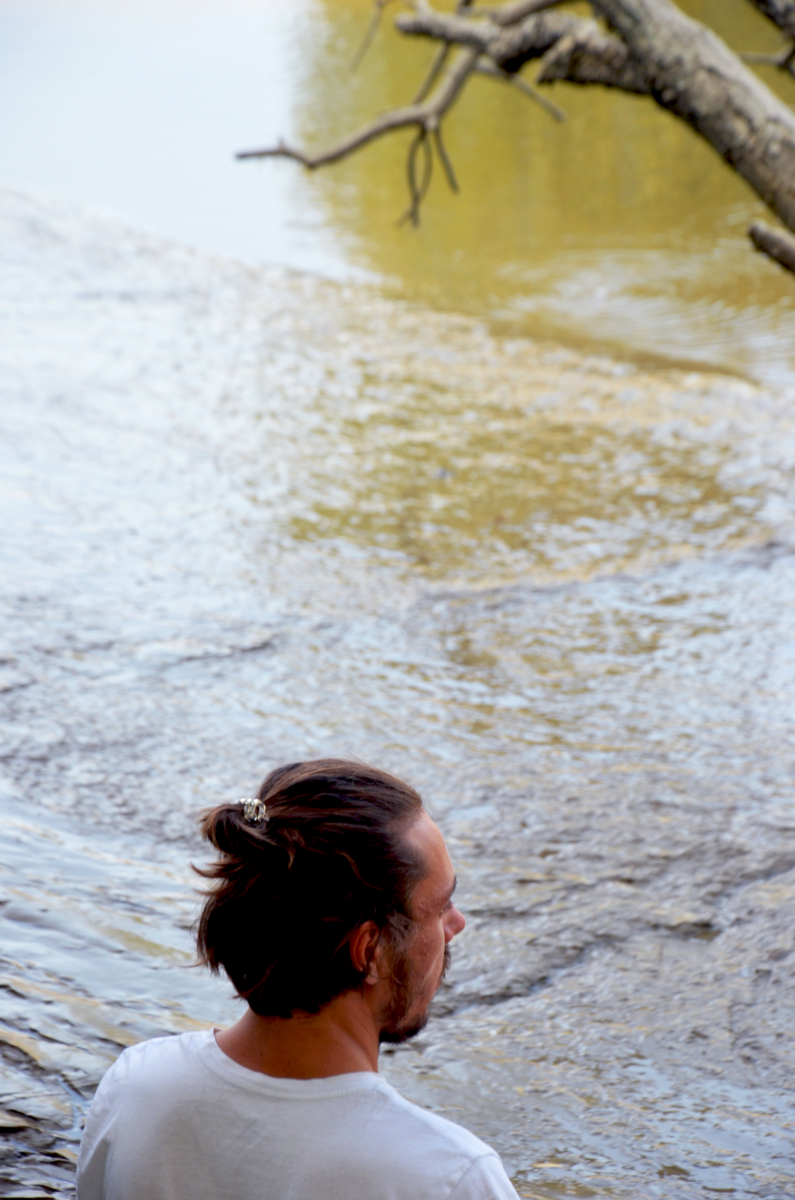
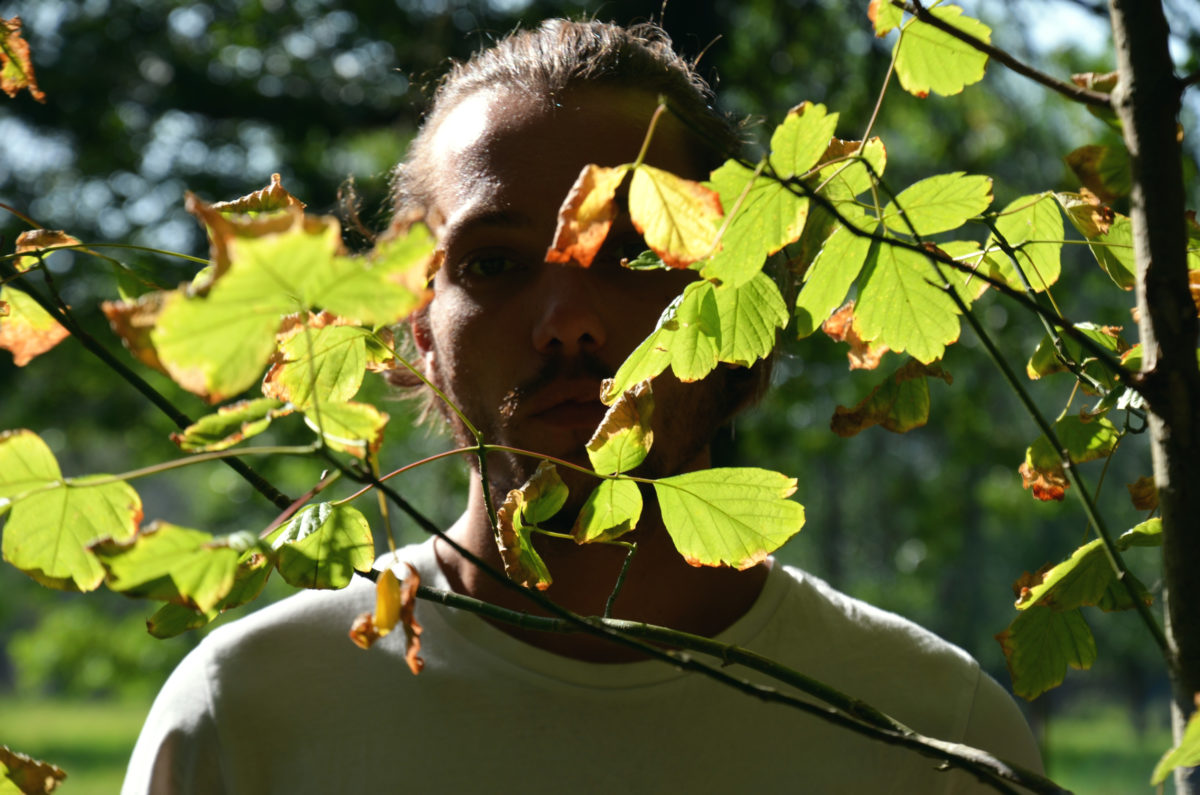
You just finished a Music School at Goldsmiths that has been very inspiring for you. What was your most valuable experience there?
The amazing thing is diversity: beatmakers, folk, RnB, punk or electronic music people who can’t read music. Who are musically formally trained but interested in music subgenre. And overall I think this diversity applies to London in general.
They are open to found music, the styles are not confined to themselves. Whereas in London, there are less walls between styles.
And in this school, people don’t necessarily have a musical background. For example in the studio of the school, guys coming from photography or other fields come to record some music. It really made me feel good, nobody is rejected, you can touch everything without being hung up.
That’s how I started to sing, to produce on Ableton, or to do field recording.
It’s a big deal to experiment without knowing how to do it at the beginning but here it’s completely normal. In other places, you would’ve been asked years of practice to be legitimate to practice something you didn’t know. It’s a bit of trust, not judging others.
You mentioned James Blake and Philip Glass, I have a strong feeling that they must have influenced your new album “Between The Lines”.
What influenced me a lot was the mix of styles as electronic music and classical music.
James Blake is a genius. He takes the essence of grime, dubstep, classical, electro, and mixes these different codes in a minimalist way. He’s also multidisciplinary: jazz pianist, singer and producer. With his music he reacts with many things around him. Besides him, there are all the sounds I listen to in everyday life that have influenced me as well.
Olafur Arnalds and Nils Frahm are the children of Philip Glass. They mix recordings everyday life sounds, more descriptive sounds, narrative sounds, photography, image… There’s a thing in classical music, harmony where each note on the piano must have its place, each note must have a solemn side and I imagine that there is a little of that with Philip Glass. Moreover he’s part of the minimalist classics where each note must have its place.
What was your purpose behind this album or the approach you chose to adopt?
Jazz and the improvisation approach is something I wanted to integrate in the album. I think it’s so cool, the improvisation in music.
Behind each song, I was telling myself a story. I also had images in my head. For example : “Winter”, the image I had in my head was the concept of being at home and being afraid to go out, to face the world. The image of this Parisian poet at his window listening to the noise of the world, the children playing, the cars passing. And sometimes he closes this window. I wanted to put sounds that represented that: sounds of the city, of children, and then little by little these sounds became distorted. Besides, I’m currently looking for someone to collaborate with to put my next album on video.
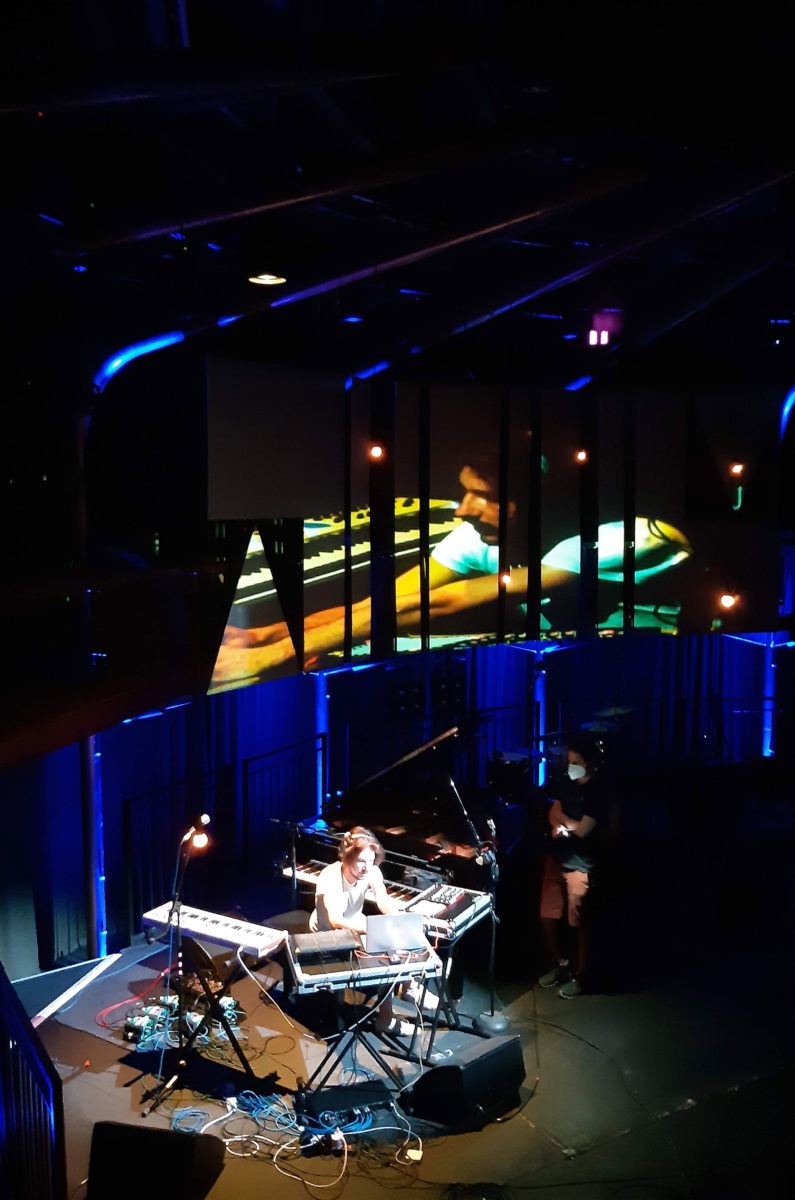
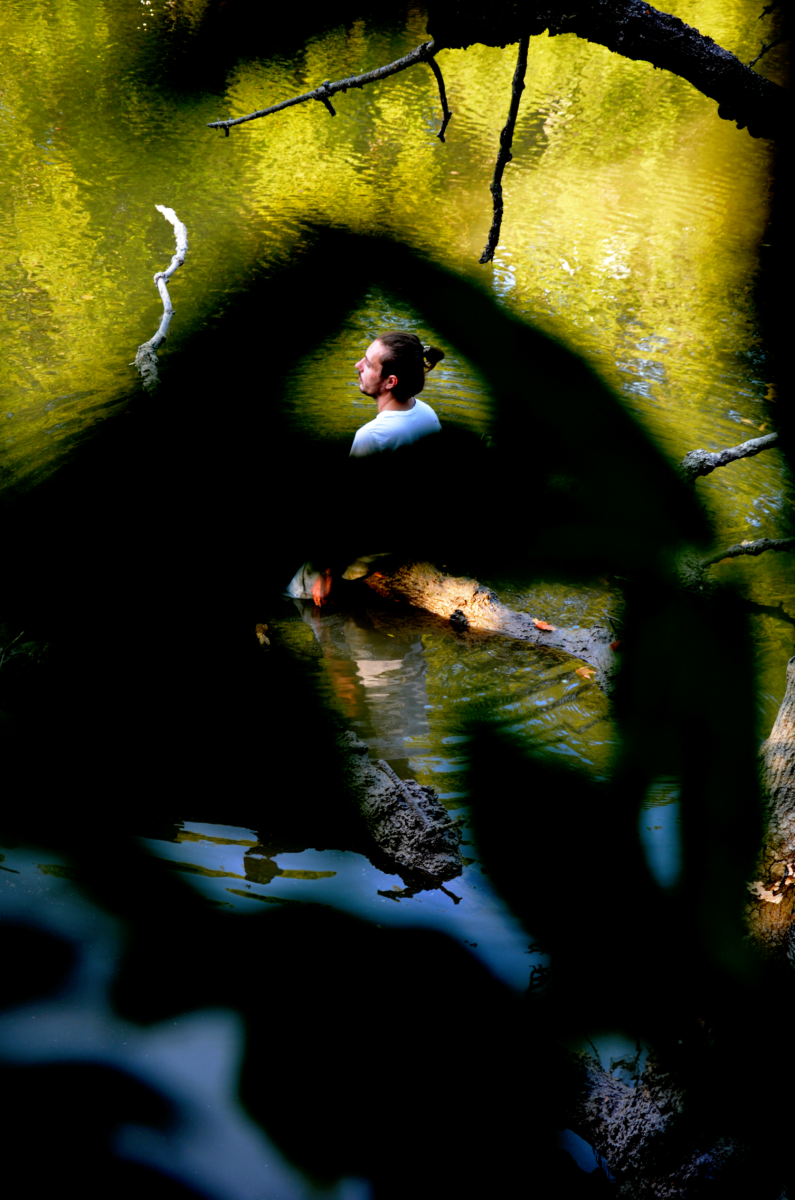
What are the best contexts to listen to this album? For me, it was perfect during my isolation for covid. (ahah)
I have a friend who told me: it’s a rainy Sunday. Indeed there is an introspection side as you say.
I did almost everything in my room, there’s the covid, we can’t go out, I’m going to put all my feeling in this album.
I also composed a lot during the night. It was very calm, very serene, and ambient. When you have an idea at the beginning of the night, it can last all night, there’s no break for eating, no going out that can disturb this idea.
So listening to it at night like on Sunday is a good time to listen to it, I think.
Is poetry as important as creating music for you?
I like to write French poems, it helps me find images for the music. But I won’t say that there are poetic texts that I sing!
Writing texts influences the music. I write texts sometimes that I want to transcribe in music.
Can you guide us through the process behind the creation of your track “Under and Overseas”?
It was during the pandemic, on a rainy afternoon. I had left the bay window open, to hear the rain and the drops of water hammering the ground. I then recorded a random improvisation on piano. While listening to the recording, I could hear some rain that I quite liked it.
Then I went in the garden with my mics, recording more rain. Then, there was a quite long production part, taking the piano part and transforming it through effect to have a rainy and underwater sound. I processed the water sound as well, pitched it from low to very high, almost sounding like some wind at the end.
In my mind, there was this thing about the clash between nature and technology. I wanted a synth sound that could accompany the piano, but gradually grow and dominate the natural sounds of piano and rain. Drum production part similarly tries to imitate rain to go to an aggressive technology dominant.
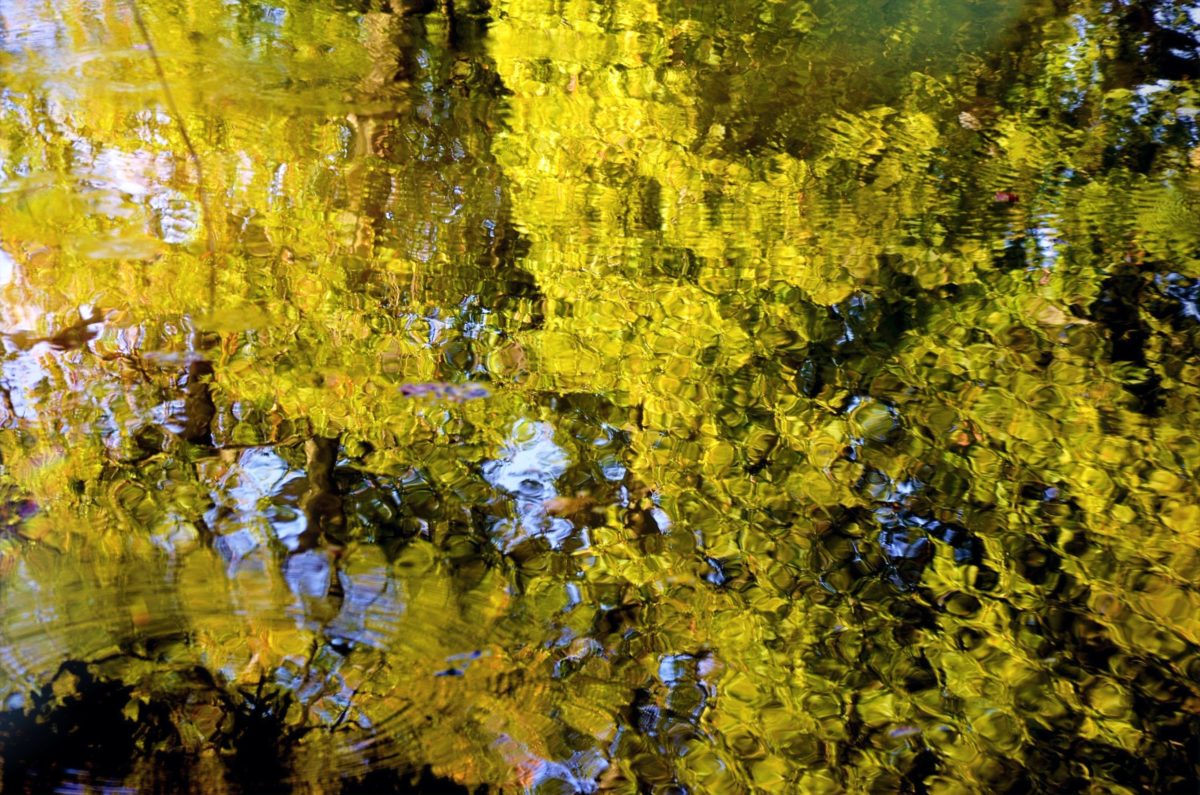
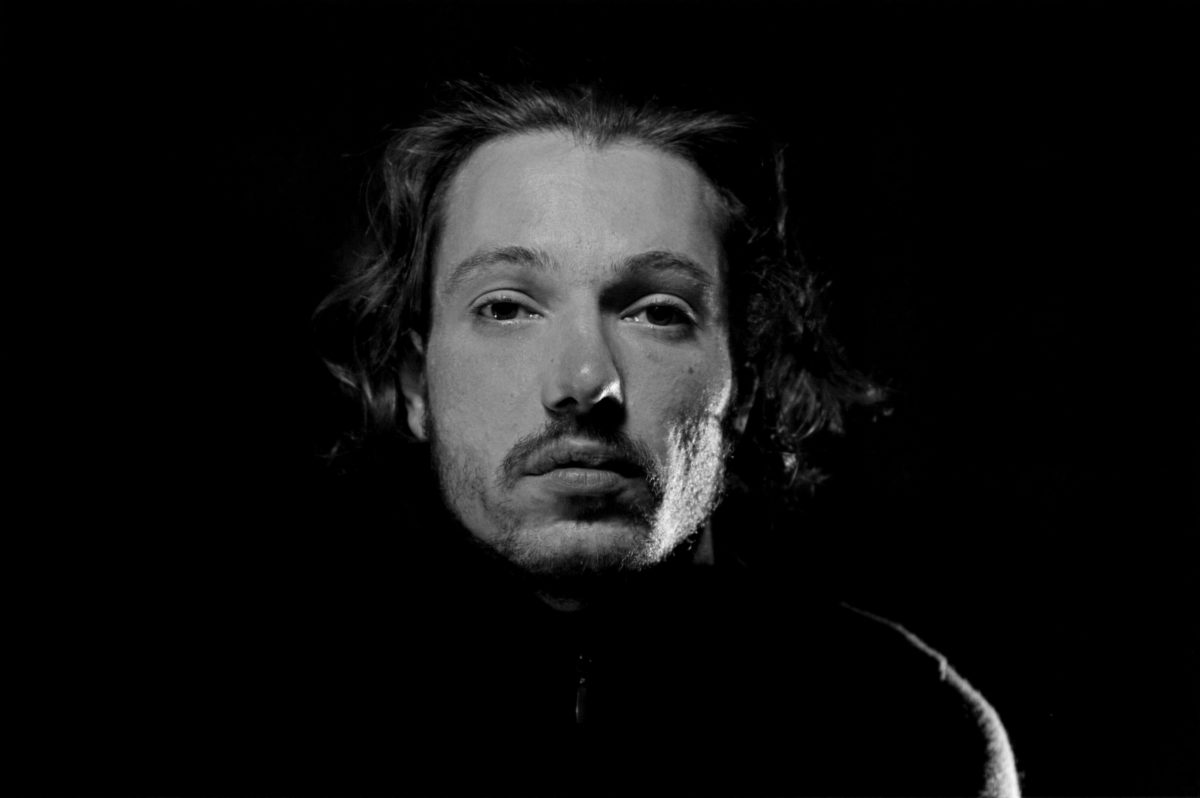
You use field recording in your songs. Are there any sounds from nature that you would like to record for a next project?
I’d like to transcribe the clash between nature and technology. It is also the impact of humanity on nature through technology. Basically I would like to record a sound of nature without the humankind. Then as I go along, I’d like to bring in more industrial sounds, more aggressive sounds, and finally sounds that are not identifiable by the ear, a bit alien.
There is a piece that would be a bit of a warning, and there would be an alternate ending where we would have found a way to correct our mistakes with nature.
I started to record sounds in the mountains, in the Pyrenees, the sea and factory sounds.
What would be the 3 most important things you would take with you during a trip alone, in nature?
A fishing rod to catch fish (I’d go to Alaska I think), a lighter for fire and food, and a sturdy leather brief.
When you start composing, do you already have an idea in mind?
I think that it starts with improvisation at first: voice & piano.
And it’s not done in one go. I play, I record something, but I never have the end or a precise idea of what I’m getting into. Sometimes when you have a precise idea, you want to arrange the music in a precise way and it’s not necessarily going to work.
Besides it’s so cool to be surprised by certain elements.
Actually there is often a story at the beginning that I will try to tell myself in my head. And that story line is going to guide me through the elements that I’m going to add.
More precisely, I start with either voice or piano or both. Then I try to do some production, edit the parts of the recording, process them in FXs.
Otherwise I’ll take some external samples, bass, layers with synth sounds, add some drums and build things around it. Then I see how to carry on with the song.
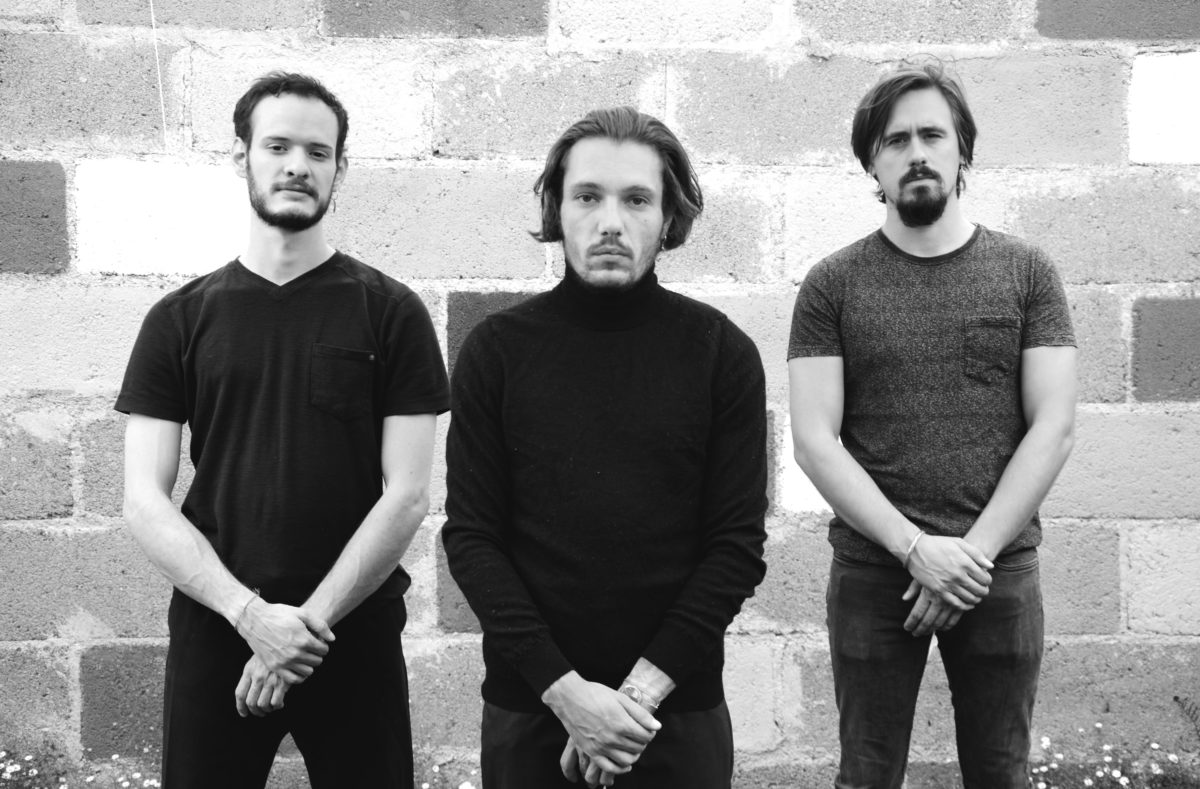
Can you tell us about your contemporary jazz trio “Off To The Luna“?
Yes, Santiago Gervasoni is a curatorial buddy who plays baroque music. As for Matis Regnault, I met him in Brussels, in jazz among other things and then we all drifted apart a bit. Creating a whole project from the start to the end made me want to go back to jazz and Santiago has been like my brother in that field for a while now. We wanted to start a new group but in a much more liberated style.
We walked away from our preferred style a bit but we found ourselves with different things in the end so it’s nice.
And then it was also to get back to the drum. It is a project that is very important to us three. We are working on an album, we don’t know yet when it will be released. We have a lot of residencies planned, we had a first concert at Trempolino. We’ll certainly have other concerts planned in Nantes, Paris and Berlin.
Who would you dream to collaborate with?
Jon Hopkins of course, he is just an amazing producer!
I would love to do a live performance with Nils Frahm because as a performer he’s a giant!!
Playing with Hans Zimmer and his orchestra on the side would also be incredible.
Can we expect in the near future, an album composed in part with cans and chopsticks?
I’m done for it! Making pieces with bicycle wheels like Jacques.
What’s next for you?
Do you know Kali Malone? She plays the organ and I really like what she does. I would like to do some organ composition and sound distortion. I’ll focus on doing residencies and developing the live aspect, and playing as much as I can!
What are you going to do just after having answered this final question?
I’m going to have another coffee and a smoke, the thing I do about 20 times a day. I have to call a friend back but I might not call her back.
Thanks Simon
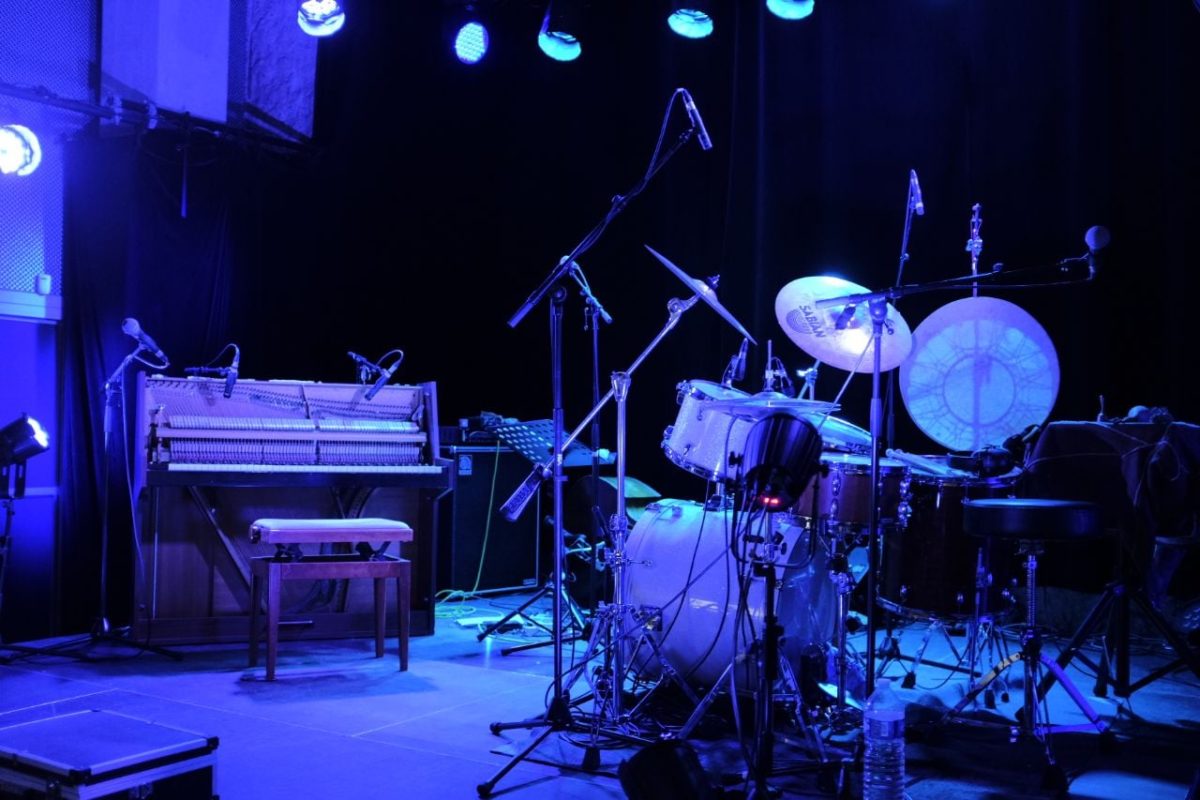
Simon is a French multi-instrumentalist and composer living in London – Find him on Soundcloud, Spotify, Deezer, Apple Music, Instagram, Facebook and a website
Credits / Photo cover-2-9 : Zelie Carasco – Photo 3-4-5-7-8-10 : Adèle Boutin – Photo 6 : Simon’s teacher
